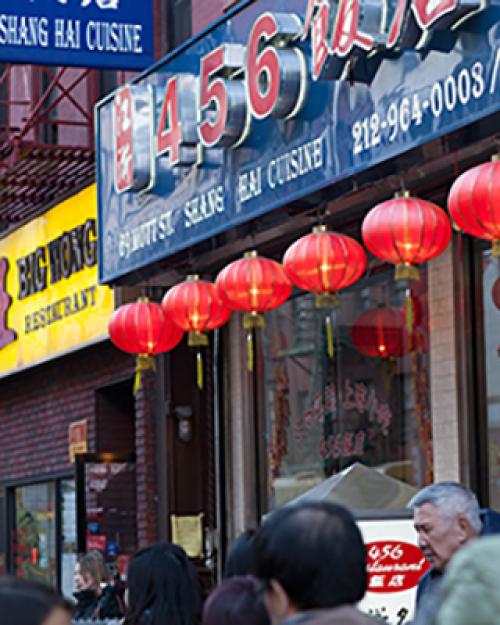The Asian American Studies Program (AASP) in the College of Arts & Sciences will celebrate its 35th anniversary this year with a symposium featuring current and former students, staff and faculty. A special guest will be the program's second director, Gary Okihiro, visiting professor of American studies, ethnicity, race and migration at Yale University.
The program, founded in 1987, was the first of its kind within the Ivy League and offers a graduate and undergraduate minor that stresses interdisciplinary approaches to studying ethnic Asians in the Americas (both North and South America), their cultures, histories and communities. AASP faculty are affiliated with various humanities and social sciences departments in the College, including the American studies program and the Department of Music.
AASP’s symposium will be held Saturday, Nov. 12, 11 a.m. to 5 p.m., in Physical Sciences 120. It is open to everyone; please RSVP to aasp@cornell.edu to attend. The in-person event will feature two panels, one a group oral history of the program with Okihiro and current AASP faculty; the second a discussion between noted Cornell alumni and Asian Americanists on the past, present and future of Asian American studies, American studies and critical ethnic studies at Cornell and beyond.
“I think it's important (to celebrate the anniversary) as we've seen the numbers of students interested in Asian American studies really increase, especially over the past four years. We see it in our minors and the students in our classes,” said Christine Bacareza Balance, associate professor of performing and media arts and Asian American studies and director of the Asian American studies program. “There are almost 19 million Asian Americans that live in the U.S., but it's really not until the past few years, with the increasing rise of anti-Asian hate crimes in this country, that people now are paying attention to Asian Americans or including them in conversations or considerations about racial equity and diversity on campus.”
AASP is often the first exposure to Asian American scholarship for many Cornellians, and they look at the experience as significant.
“I decided to take Asian American history because I’ve never been presented with the opportunity before coming to Cornell,” said Nia Perry ‘25, an American studies major. “So far, I’ve really enjoyed learning about something so important to me, and I’d recommend the class to anyone with even the slightest interest.”
Okihiro said Cornell’s program is important because of its location far from California – the epicenter for Asian American studies – and its inclusion in the Ivy League.
“Few will recognize today how dominant California-centrism still haunts the field, or the black and white racialized binary that prevails east of California, slighting American Indians, Latinxs and Asians as derivation,” Okihiro said. “Cornell's AASP organized the East of California group that was crucial to de-centering California with other centers different from the Golden State. (Cornell also) mentored faculty and students in institutions without AAS and became an important caucus in the national Association for Asian American Studies (AAAS).”
The field of Asian American studies has shifted since its inception in the 1960s, from an East Asian and California-centric history and literature-based curriculum to one that encompasses all of Asia as well as all of North, Central and South America, Balance said. Research has also expanded to include scholarly emphasis on performance, media and visual arts as well as queer and feminist studies.
Balance said there is still work to be done, adding that curriculum in classes at Cornell and other institutions dealing with race or migration often excludes Asian Americans. “As we know, these are issues that directly impact our communities,” she said.
The interdisciplinary field of Asian American studies tries to understand the diversity of Asian American identities, communities and experiences, from Southeast Asian war refugees and Pacific Islanders who may not necessarily identify as Asian American to “traditionally” recognized Asian Americans of East Asian descent.
“Asian American identity is not just shaped by domestic policies or politics or histories, but is also irrevocably connected to the U.S.’s relationship and histories with countries in Asia and the Pacific,” Balance said.
Other events that the AASP is hosting or co-hosting in the near future include:
- Oct. 26: Wednesday Lunch Series (WLS) lunch with Shelley Wong, associate professor, Literatures in English and AASP
- Nov. 1-20: Kitchen Theater Company performances of “Edith Can Shoot Things & Hit Them”
- Nov. 2: BeComing Lunch Series with Philly Latorre
- Nov. 9: BeComing Lunch Series with Pearl Ngai
- Nov. 10: Gellman Lecture with Kandice Chuh, professor of English, psychology, liberal studies, American studies and Africana studies at CUNY’s Graduate Center
- Nov. 16: WLS lunch with Aziz Rana, Richard and Lois Cole Professor of Law at Cornell
Find more details on the program website.
Jonathan Mong '25 is a communications assistant in the College of Arts and Sciences.




